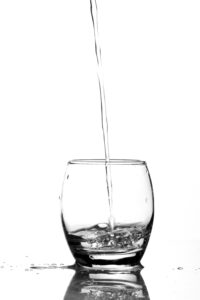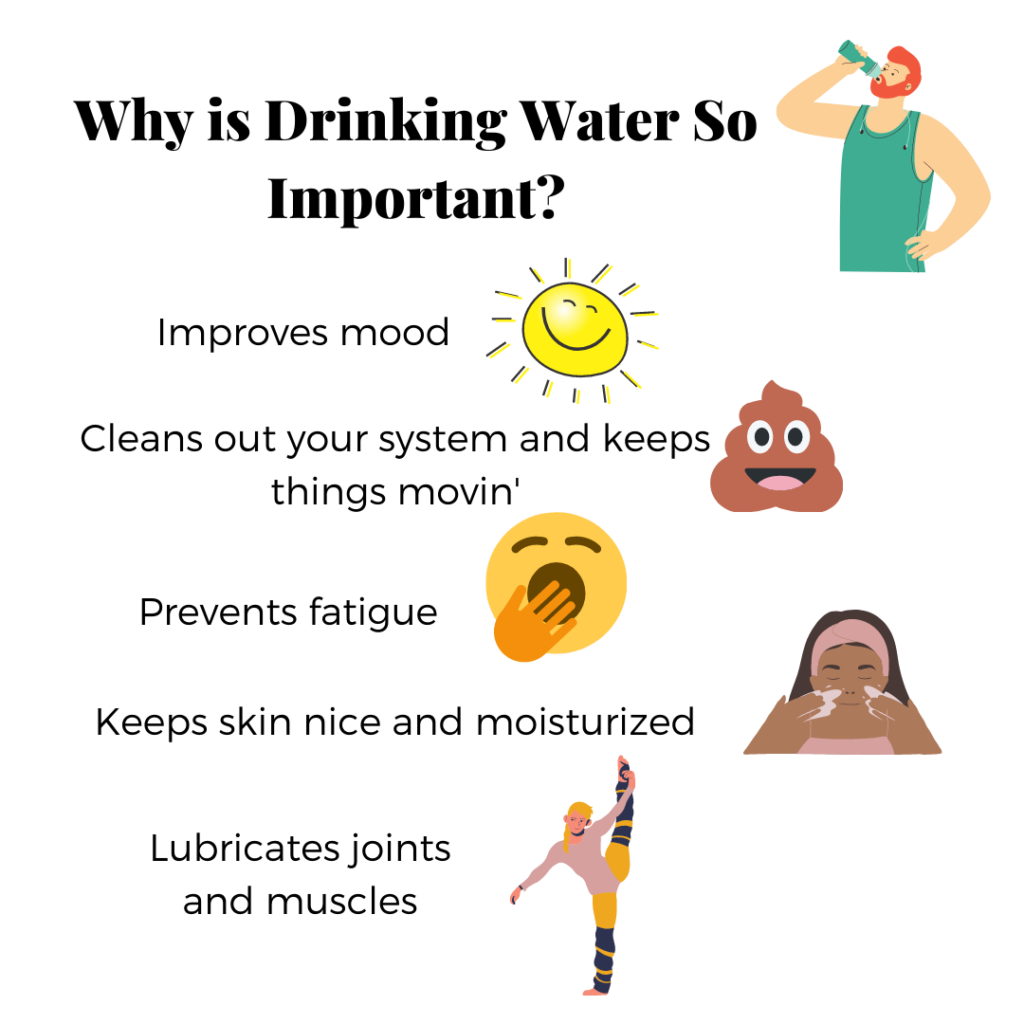How Much Water Should I Be Drinking?

Getting enough water every day is important for your health. Be on the lookout for signs and symptoms of dehydration this summer! With the rise in temperatures and increased outdoor activities (especially with COVID-19 and regulations on indoor activities), be sure daily fluid intake is on your radar.
How much do you need?
As with most things related to your health, it will depend. To give you some direction, the National Academy of Medicine recommends drinking about 11 cups (88oz) of water for women and about 16 cups (128oz) of water for men per day (this does include fluid from food too). However, fluid intakes will vary based on:
- age
- activity level
- climatic conditions
- medications
- medical conditions
- how much one perspires

What are the benefits of staying hydrated?
There are so many reasons why staying hydrated should be a top priority not only this summer but all year round. Staying hydrated can help:
- improve your mood
- remove waste through sweat, urine, and stool
- produce necessary bodily fluids like tears and saliva
- prevent fatigue (so helps with energy levels– yay!)
- boost brain function
- help moisturize skin
- keep your temperature normal
- lubricate and cushion joints
- improve exercise performance
What are common signs and symptoms of dehydration?
Mild signs and symptoms of dehydration include headaches, irritability, fatigue, dry skin, increased thirst, constipation, dizziness, dark colored urine, swollen feet, and loss of appetite. Dehydration can also be life-threatening. More severe symptoms may include heat exhaustion, stroke, confusion, fainting, lack of urination, rapid heartbeat, and rapid breathing.
How can I stay hydrated this summer?
If drinking 11-16 cups of water per day seems daunting, there are several other ways to meet your fluid needs aside from only drinking water! Consuming fruits, vegetables, dairy, and grains daily are some additional ways to meet your fluid needs.
Fruits and their water content: Vegetables and their water content:
Watermelon: 92% Cucumber: 95%
Strawberries: 91% Lettuce: 96%
Cantaloupe: 90% Zucchini: 94%
Oranges: 88% Celery: 95%
Peaches: 89% Bell peppers: 92%
Grapefruit: 88% Cauliflower: 92%
Unsure where to start? PRO TIP: Try having a fruit with breakfast, vegetable with dinner, and drinking water at each meal to help meet your hydration needs this summer!
Sources:
https://www.cdc.gov/healthywater/drinking/nutrition/index.html
https://www.cdc.gov/nutrition/data-statistics/plain-water-the-healthier-choice.html
https://www.mayoclinic.org/diseases-conditions/dehydration/symptoms-causes/syc-20354086?p=1
https://www.healthline.com/nutrition/19-hydrating-foods#section20
https://medlineplus.gov/dehydration.html
https://www.heart.org/en/healthy-living/fitness/fitness-basics/staying-hydrated-staying-healthy